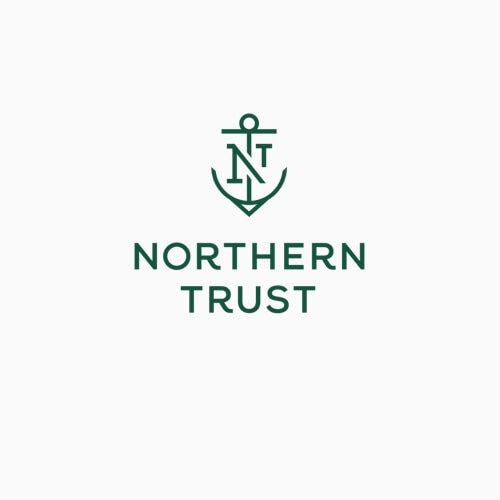What are values? Values are guiding principles that influence an individual’s or group’s behaviour, decisions, sense of purpose and what they consider acceptable or important.
And why do advisers who work for HNW and UHNW clients need to pay attention to their clients’ values? If they don’t already recognise why this is important and proactively respond, they clearly have their heads in the sand.
So to get their heads out of it, I suggest they read the report that was published by Society for Trusts and Estate Practitioners. It demonstrates that the importance of values is the hot topic today, especially for the overall management of family wealth. And I don’t think it will be leaving any time soon – if ever.
The report explains advisers’ in-depth perceptions of their clients’ attitudes to:
- Wealth and purpose
- Social responsibility
- Taxation
- Trust and equivalent structures
- Communication
- The role of the advisers
- The way forward
- Conclusion
Out of the 13 trends that were identified (geopolitical, AI, taxation, etc.), if it’s family wealth that’s being managed and the below four points aren’t addressed to help build and strengthen family cohesion, the family is likely to fall apart; and the rest of the trends will no longer be applicable.
Four trends identified:
- Family first: A stronger emphasis on clients taking care of their own bloodline and focusing on passing wealth to future generations.
- Values aligned: A stronger client desire to align wealth with personal values, particularly in areas like sustainability, social impact and governance. A greater focus on impact, legacy and meaningful investment.
- Social responsibility: An even stronger focus on social responsibility, with climate change issues becoming increasingly important and driving more decisions.
- Philanthropy: A predicted trend toward a more selective approach to charitable giving and increased economic pressures is increasingly leading to a drop in charitable giving.
If Principals are driven to pass their financial wealth to future generations, they need to work hard to a) make the next-generation and/or rising-generation want it (rather than have no interest and feel no ownership over it), b) guide them so they do something positive with it (rather than spend it on Ferraris, yachts or drugs) and/or c) steward the wealth so it’s passed down to their own children, grandchildren and everyone else who comes after that (and ensure new opportunities are available to benefit from the hard work that was done to raise the capital in the first place).
We rounded up a few companies that you might find interesting.
What could advisers do to help their clients meet a, b and/or c?
They work with their clients to focus on which values are aligned between family members, and these values are used to facilitate family cohesion and long-term unity.
But how do you get a family together to discuss their values when, particularly in the UK, these conversations are normally way outside people’s comfort zones?
In addition to that problem, as is evident in the STEP report, inadequate communication among family members continues to remain a critical obstacle to effective family wealth management. This communication breakdown stems from multiple factors: the desire to maintain privacy about wealth levels from outside parties, reluctance to share financial information with family members due to fears of fostering entitlement, and concerns that disclosure might trigger conflict, resentment, and disputes within the family unit.
With so much discomfort identifying values, and the lack of viable communication, what exactly am I suggesting they do?
The benefits of philanthropy
Consultations about philanthropy can provide a positive reason to get everyone together, give each family member a seat around the table, and create an opportunity for the family to align their values and create aspirations, goals and a legacy that they all want to work towards. They can teach families to work together and create family unity and cohesion over time. Drawing family members together to talk about a philanthropic cause teaches new skills, including collaboration, compromise and shared decision-making. When philanthropic activities are approached strategically, they can provide younger family members with opportunities to develop their own sense of purpose and give them a lesson about sharing power and responsibility with others in a lower-pressure environment.
Philanthropy discussions offer advisers a valuable channel to educate upcoming generations, introduce wealth concepts, and provide customised financial literacy resources that prepare heirs for responsible wealth management. When Principals allow wealth conversations to begin early in their children’s lives, this proactive approach helps protect family legacies, minimise potential future disputes and unexpected situations, and creates space for contingency planning.
Conclusion
Growing up with wealth, or suddenly inheriting it, can be a significant challenge that needs to be faced. If it’s not faced, or faced badly, it can lead to irreconcilable family conflicts, drug abuse and/or other methods of self-harm, loss of self-identity, loss of motivation or purpose, skills development barriers, mental health risks, homelessness… the list goes on and on.
So for all the conversations I’ve had and everything I’ve read, it was great (and a relief) to see advisers have recognised that there has been a clear shift in their clients’ needs and focus.
Advisers who currently serve HNW or UHNW individuals and/or families – and plan to continue to do this – need to recognise the evolving expectations of their new client base and strive to proactively offer a holistic service.
Wealth management is no longer just about financial growth – it’s about purpose. Advisers who embrace this shift will build deeper, trust-based relationships with clients, ensuring their own long-term success.
- STEP is a global professional body, with more than 22,000 members comprising lawyers, accountants, trustees and other practitioners that help families plan for their futures.










